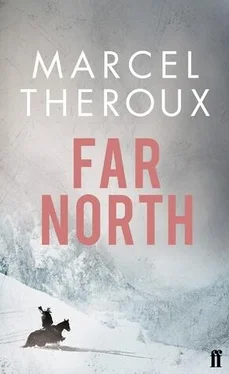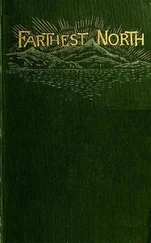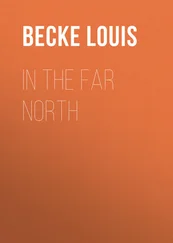That poor baffled Tungus was me in my first days at the base. The place had a vitality I had never known except in the town of my childhood. I was so fizzed up I could hardly take it in: the extraordinary powerful smell of unclean men and animals, the raised voices, the faces of every brown and yellow shade, and the press of bodies in the barracks and at mealtimes, surging together, tighter than a run of salmon.
It was days, maybe weeks, before my new life took any kind of shape in my poor overloaded brain, and until then, I just kept my head down, did as the others did, tried to stay out of trouble.
We were housed in two sets of barracks. There were some three hundred souls altogether. The barracks had been built for fewer, so the overspill had to fit in somehow. The old-timers had the best bunks. The new arrivals made do with common space on big raised wooden boards. For nearly three years, the planks of wood above my head were my whole private world. I shivered under them in winter, sweated there in the heat of summer or when fever gripped me. I could still draw every knot in those planks. I know them better than my mother’s face.
Almost every one of the prisoners worked at farming — every aspect of it, from shoeing horses to milking cows, sowing, reaping, preparing feed to salting cabbage, and pickling grass in the silo for winter.
They mustered us for a head count morning and evening.
That first summer I baled hay in the hot sun all day and in the evening I milked cows in the byre. I hadn’t seen anything on that scale for years. There had to be a couple of thousand acres under cultivation. And the land was the good-looking rich black earth that the Russians used to tell jokes about: if you leave a spoon in the ground, they’d say, it grows into a shovel. Chernozom, I believe they called it.
There was a team that worked in the kitchens. Everyone wanted that. It was considered the softest labour: plenty of food, indoors all day. The jobs in there went to the most senior prisoners. But I never minded being outside. We had food in abundance. And I have to give it its due: the prison bakery made the softest loaf I have ever tasted.
In the first weeks, the new prisoners had that giddy sense of themselves that comes with eating, and a good day in the sun, and the relief that they had arrived at their destination, and it was no worse than this.
We came in from the fields around five for the second head count.
‘My belly aches!’ one said in wonder, as he wiped his dish with a hunk of black bread.
There was a lot of contented snoring in the barracks, and when there were eggs for breakfast, those fools thought they had died and gone to heaven.
If we’re living this soft, they thought, how can it be on the other side, where Boathwaite and his men live?
*
It was like a busy little village in that barracks at night. Most of the men knew at least one trade and they’d do odd-jobs on the sly for the guards — a little tailoring or woodwork. One man built banjos and sold them. Another, who had a reputation for cooking plov, was dragged out to make it for the guards on birthdays and always reeled back from the celebrations drunk. They would generally be paid in drink, or smokes, or bits of food.
There were rumours of women at the base, but I was the only one I knew of among the prisoners, and I didn’t lay eyes on another for two years.
For those two years I was barely alone for one second. Even in the latrines you couldn’t escape into your private self because there would be others in there constantly. At the same time there was nothing that I could call companionship.
I had hoped to stay friendly with Shamsudin, because I liked him and he seemed a decent man, but my friendships with him and Zulfugar didn’t much outlast the march.
Now and again, I’d have reason to work with one of them and there was a trace of the old warmth, but most of the time they were following a different road. There were other muslim prisoners at the base and they all stuck together for prayers and mealtimes, and fasted together for forty days in the fall. My being a woman made any closeness with them impossible. And of the other prisoners, there were none that I wanted as friends.
*
The grimness of life at the base had no end. It doesn’t make sense to number all the fistfights and the killings, and the drinking, and the bawdy talk. What struck me though was that, in all that time, we never had a man take his own life, and as for me, who had got so close to taking my own, it never entered my head to end it there.
When Ping and the baby died my life had taken on a kind of looseness. It was a strange feeling for a person like me, who wakes up every day with a belly full of fight. It’s hard to explain how it was. But back then, after she died, between this and that, there seemed to be no kind of meaningful difference. Not in anything. When I threw myself in the lake, I think I was already three-fifths dead, and I just wanted to stop breathing.
And yet when I remembered my life in the cabin from my stinking berth in the rack of bodies at the base, it seemed like the most beautiful part of it that had ever been: all the space, the music of the water, only myself to please. But that was where I had wanted to die. Now here, I woke up each morning raging to live.
All my energy burned on living. How to eat better. How to keep myself strong. How to lay by warm clothes for the winter. When I dug, or baled hay, or humped potato sacks, I did it with the intensity of prayer, and my prayer said: keep my body young, let me outlast this place, let me not die here in the stink of these men.
eight="0em" width="1em">
Many times I thought of escape. We had the chances. But the guards’ best weapon in keeping order was the prisoners themselves. We lived so on top of one another that you could never have got hold of even the minimum of the things you’d need to survive outside the base without someone turning you in. There was a whole group of snitch prisoners who told tales to the guards to try to get in friendly with them. They would be paid for their tattle, but most of them would have done it for free. An oddity of our prison was that, once in a while, someone you’d got used to seeing in the bunkhouse, or working beside you, would disappear for a week or two, and then turn up again, but this time holding a gun, perhaps on horseback, having been made a guard.
It was cunning on Boathwaite’s part for many reasons. Men need hope. They need something to dream on. For the prisoners, this was better than heaven: they could come back, in this life, with all the rights and pleasures of a guard! That’s one reason why there were so many eager snitches. It also meant that Boathwaite had men under him who knew the mood in the prison so well that any troublemaker could be rooted out and dealt with before he had time to organize. There didn’t seem to be much rhyme or reason to the process. The prisoners who got the break weren’t especially anything. But they never made into a guard a man who was too keen on prayer — and there were some of them — and they never chose a muslim.
I’d be lying if I said I was miserable every minute. If it were true I couldn’t have lived. I had unfinished business outside there. I hadn’t dreamed that plane.
And, the plane aside, it was still possible to find some joy in each day. I always liked farming, its colours and smells, and the miracle of the soil. We die for ever, but a plant dies back to his root. That was also a kind of comfort to me. Nature favours the small and simple when times are hard.
I never got over the power of that land. We grew so much that each fall we didn’t need to harvest it all. We left some fields to rot, and others we ploughed back under. In August and September we had tomatoes coming out of our ears. Pumpkins, squash, corn, milk, butter. And that was with slaves working it, griping, hating it, gold-bricking on principle, every chance we got — imagine what free men would have made of the place.
Читать дальше












